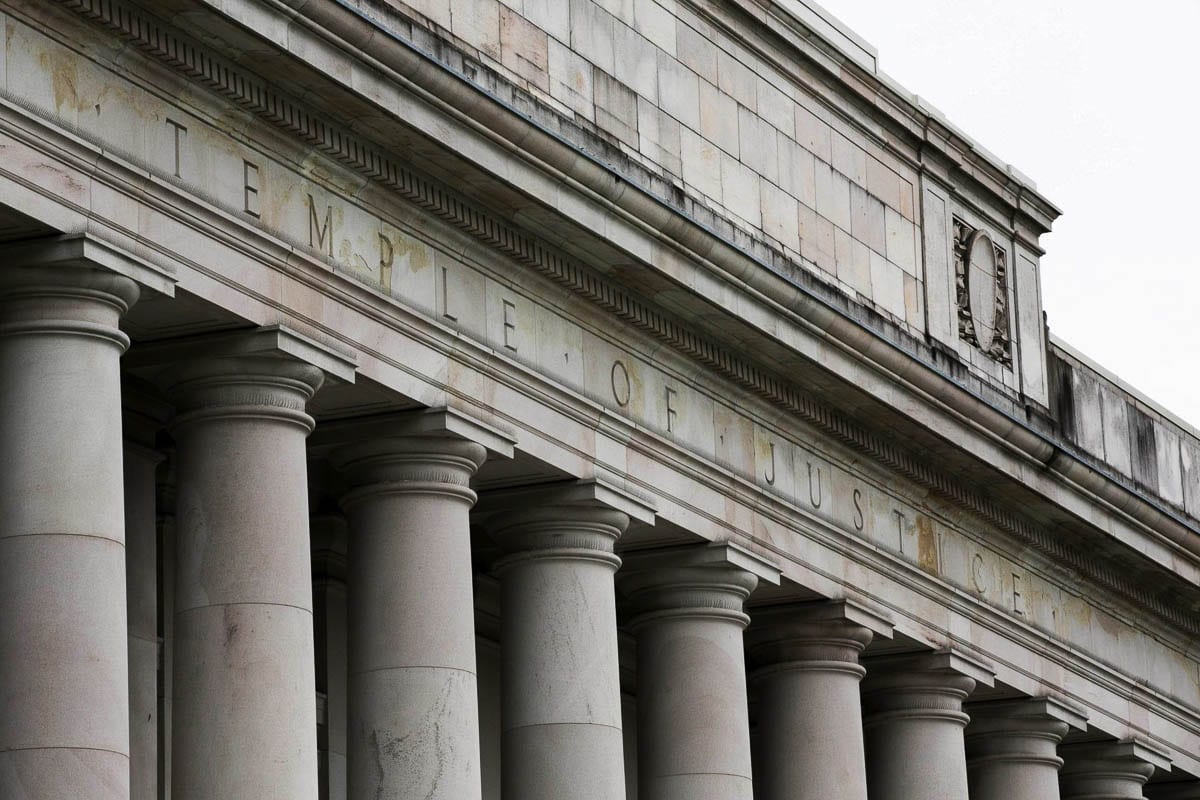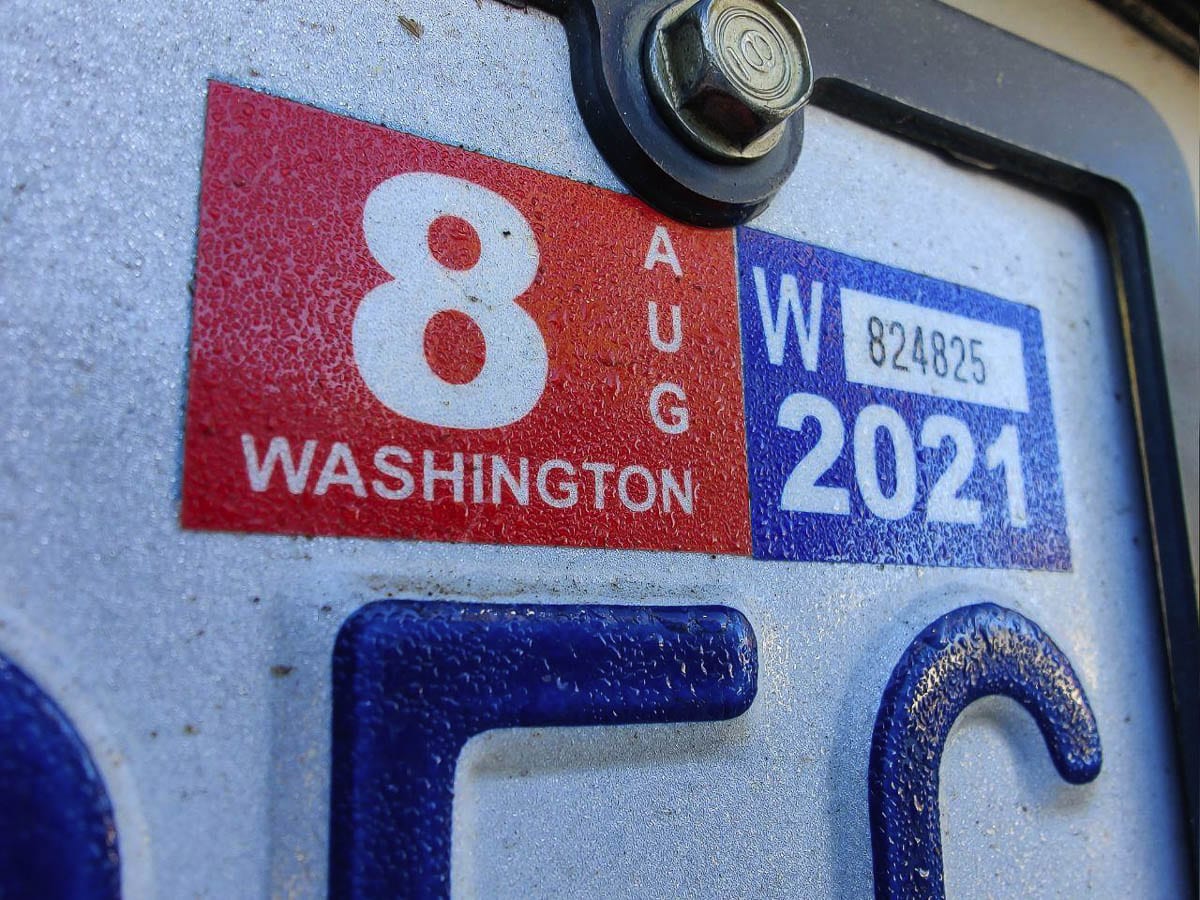Republicans decry the move as a partisan one by the state’s highest court
CLARK COUNTY — “Extremely disappointed.”
“Appalled.”
“Predetermined.”
Those were a few of the reactions from several Southwest Washington Republican legislators on Thursday after hearing the Washington State Supreme Court had ruled I-976, the $30 car tab initiative approved by voters last November, was unconstitutional.
“The voters have spoken on it,” said Rep. Vicki Kraft of the 17th Legislative District, “their voice and vote need to be respected.”
“The will of the voters has been denied,” agreed Sen. Lynda Wilson (R-Vancouver). “I mean, how many times does the voter have to tell the government that they want $30 car tabs?”

This was the third time voters have backed an initiative to constrain car tab fees, all put forward by anti-tax activist Tim Eyman.
In Thursday’s ruling, the Justices determined the initiative violated the state’s constitution in two ways: a “deceptive and misleading” title, and a violation of the “single subject” law which requires ballot initiatives to focus on changing only one law.
“It is truly maddening to me for the court to say that the voters were confused by an initiative that is so straightforward and so understandable,” Eyman said during a media briefing outside the state capitol on Thursday morning.
State Sen. Ann Rivers (R-Vancouver) was quick to point out that Attorney General Bob Ferguson, a Democrat, wrote the ballot title.
“Seems like that’s the new drill now,” Rivers told Clark County Today. “Write a terrible title that won’t pass muster, and then you get it diminished, even though the people of the state spoke very loudly and clearly.”
I-976 passed in Nov. 2019 with 53 percent approval statewide, and 61 percent in Clark County.
The ballot initiative was quickly challenged on legal grounds by the city of Seattle, King County, the Sound Transit Authority, and a number of other municipalities and individuals.
It was largely upheld by King County Superior Court Judge Marshall Ferguson in March of this year, but Ferguson allowed an injunction to remain in place until the high court could issue its ruling.
“We have nine justices on the Supreme Court that are to the left of a (Gov.) Jay Inslee appointed judge in King County,” said Eyman. “So the voters of the state are right to be angry, right to be outraged.”
“I’m appalled, to tell you the truth,” said 18th District Rep. Larry Hoff, a Republican. “The fact that 53 percent of Washingtonians voted for it would suggest to me that it needs to be implemented.”
In its decision, the court noted that the reduction in tab fees would hit the Seattle area and the San Juan Islands especially hard, while 53 percent of voters in the Puget Sound area voted against the initiative, including 60 percent in King County and 70 percent in the San Juan region, which relies heavily on ferry services subsidized by vehicle excise taxes.
Hoff responded to that by noting that the majority of Clark County voters were opposed to I-1639, a gun control measure approved by voters in 2018.
“You cannot pick and choose what laws and what initiatives you decide to follow,” said Hoff. “There were several counties that voted against that. I voted against I-1639. However, the majority of Washingtonians voted for it, it’s a law, and it’s something that we have to just live with at this point.”
Others noted that the Supreme Court had declined to weigh in on the constitutionality of I-1639 for largely the same reason they did rule on I-976.
Eight of the nine Justices signed on to Thursday’s opinion, with Justice Barbara Madsen agreeing that the initiative likely violated the state’s Single Subject law, but disagreeing that the ballot title was sufficiently misleading.

While the title of I-976 said it would roll back car tab fees “except voter-approved charges,” the court found it would also roll back car tab fees voters had previously approved, and eliminate the state statute allowing for the imposition of a vehicle fee for a Transportation Benefit District. It also removed weight fees for both motor vehicles and motorhomes, and forced the state to charge taxes based on the Kelley Blue Book value of a vehicle.
Several of the lawmakers who spoke with Clark County Today again urged Gov. Jay Inslee to call for a special session of the state legislature, to address the budget crisis created by the COVID-19 pandemic, as well as to consider legislation intended to implement what voters indicated they wanted through I-976.
“That’s actually been a bipartisan request from lots of Democrats and all Republicans, and he’s just ignoring those requests,” said Hoff. “So I’m not entirely sure that he’s gonna listen to this one now.”
Rep. Kraft said she would like to see the legislature again consider House Bill 2659, which would limit state and local taxes, fees, and surcharges on vehicles, including $30 car tabs, “which the voters have spoken on.”
A spokesperson for Rep. Monica Stonier said the 49th District Democrat was booked all day and unavailable to comment. Rep. Sharon Wylie and Sen. Annette Cleveland, also of the 49th District, did not reply to requests for comment.
Rep. Jake Fey (D-Tacoma), chair of the House Transportation Committee, noted the initiative was forecasted to reduce the state’s transportation revenues by an estimated $660 million in the 2021-23 budget.
“Because of constitutional restrictions on the use of gas taxes, revenues collected from car tabs are especially important for those people who rely on these services for their transportation needs,” said Fey. “While this decision upholds funding for transportation projects, given the global downturn in the economy and public sentiment around car tabs, we still need to consider other ways of addressing these needs.”
The city of Vancouver noted that more than $4 million of Transportation Benefit District funds have been collected since the passage of I-976, but have been held in a restricted account since Dec. 2019.
“City staff intends to discuss the Court’s ruling with the Vancouver City Council and have a full, open, and transparent conversation about the best way to finance the ongoing transportation needs of the City of Vancouver before solidifying plans on how best to utilize the balance of the restricted account,” a city spokesperson said in a written statement.
As for Eyman, he said he plans to continue a protest he started last year: not paying for new car tabs.
“I’ve been pulled over twice over the last year, and both times I gave the officer the same presentation,” Eyman said. “I said, ‘The voters voted for this initiative. I didn’t forget to pay, I just think that I shouldn’t have to pay more than what the voters voted for. Please, officer, use your discretion and issue me a warning today. Both cases I got a warning.”
As for any plans to try again for a fourth time, Eyman seemed to indicate he’d rather see lawmakers tackle the issue from here on out.
“Is it really necessary?” he asked rhetorically. “I mean, the whole reason you do an initiative is to show what the voters want. Clearly the voters want this. And they just need to have elected officials that are willing to listen.”




